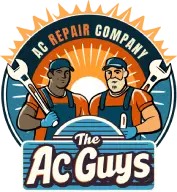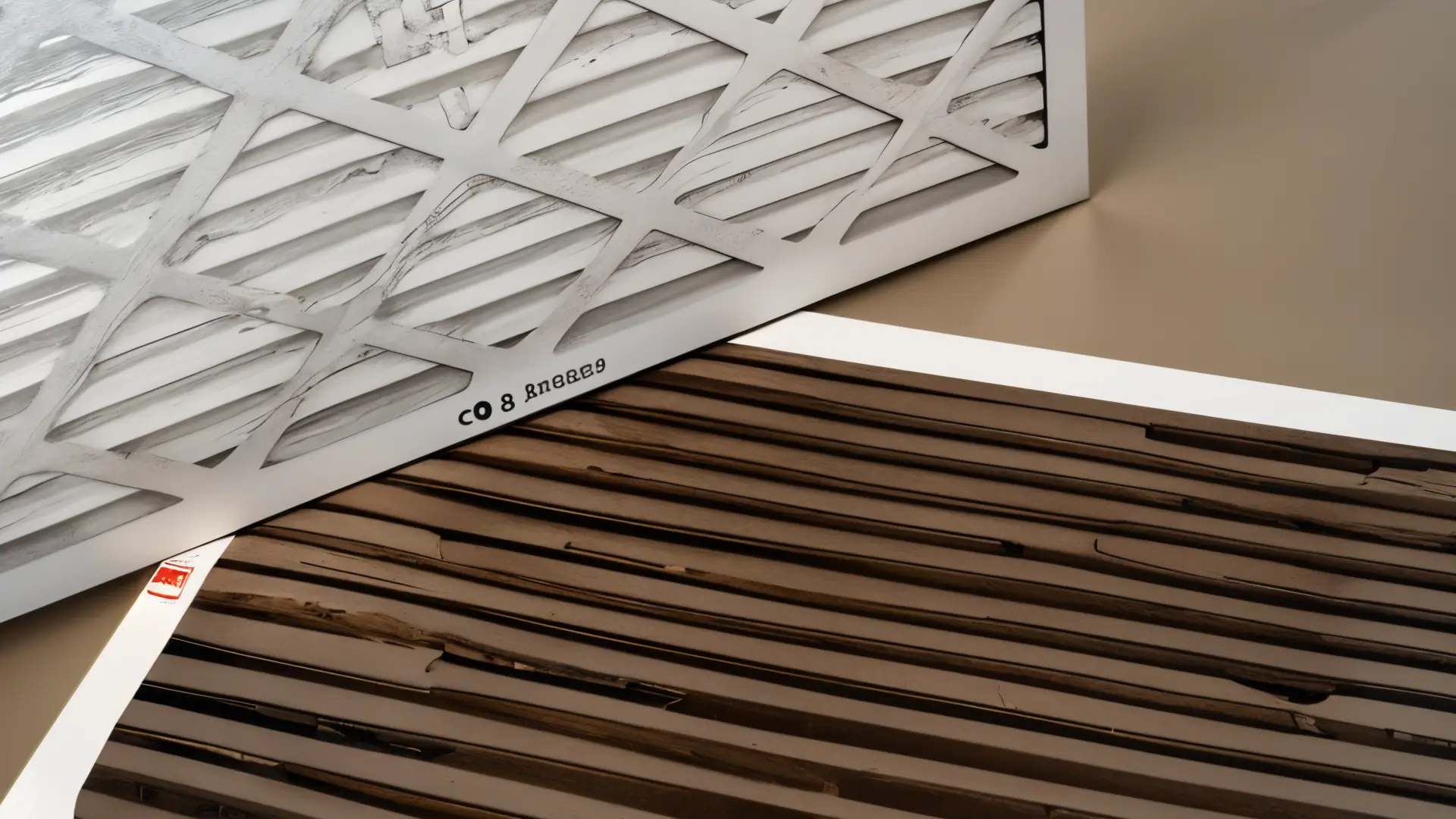One of the most neglected parts of a home’s HVAC system is the air filter. However, they are essential to maintaining the cleanliness of your air and the functionality of your equipment. A series of air filter problems that can be detrimental to your system and your health are brought on by dirty, clogged, or damaged filters.
This guide will explain what a bad air filter looks like, the most typical signs and issues, how leaks can lead to major issues, and the best ways to avoid expensive damage.
What Does a Bad Air Filter Look Like?
The first step in avoiding more serious issues is understanding how to spot a bad filter. A clean filter should have visible pleats or mesh that let air flow through, and it should be white or off-white in color. Conversely, a poor filter frequently exhibits obvious warning indicators:
- Heavy dust buildup: Debris covers the majority of the filter’s surface, giving it a gray or dark brown appearance.
- Stains and discoloration: Patches that are moldy, black, or yellow could be signs of biological growth or moisture.
- Warped or bent frame: A filter that doesn’t sit properly in its slot allows air to bypass it entirely.
- Unpleasant odors: A musty smell is often the result of trapped bacteria, mold spores, or moisture.
If your filter looks like this, it’s no longer protecting your system or your home’s air quality.
Typical HVAC Air Filter Issues
Not only is a clogged or dirty filter inconvenient, but it also causes a number of issues with HVAC performance:
- Decreased airflow: When dust accumulates, circulation is impeded, which makes it more difficult for your system to heat or cool.
- Increased energy costs: To maintain the same temperature, a malfunctioning system uses more electricity.
- Short cycling: The unit prematurely wears down parts by turning on and off too frequently.
- Evaporator coils that are frozen: When airflow is blocked, the coil becomes extremely cold, which freezes moisture within the system.
- Odors: Unpleasant odors can spread when dust and bacteria are trapped by filters.
If these air filter issues are not fixed, your HVAC system’s lifespan may be shortened.
Signs of a Poor Air Filter You Must Pay Attention
The filter may not always appear visibly dirty, but there may be indications that something is amiss in your house:
- Reduced vent airflow: It takes longer to heat or cool a room.
- Increased dust indoors: Dust settles quickly even after cleaning.
- Allergy flare-ups or headaches: Poor air quality worsens respiratory issues.
- Unusual system noises: Whistling or straining sounds may indicate that airflow is restricted.
- System overheating: When the filter is clogged, the HVAC motor has to work harder than it should.
Before a system failure happens, homeowners typically notice these bad air filter issues.
For More Information: Do Better Air Filters Restrict Airflow? Complete Guide
Signs of an Air Filter Leak
Clogging isn’t the cause of every problem. An improperly sealed filter can occasionally be the issue. Unfiltered air can enter the system through these gaps.
Important signs of an air filter leak include:
- Sounds of whistling near the filter slot.
- Uneven cooling or heating in different rooms.
- Despite a recent filter change, there is still dust accumulation close to supply vents.
- When a technician inspected the blower, the parts were dirty.
Leaks are hazardous because they let dust and other impurities pass right through the filter, harming delicate HVAC parts like the evaporator coil and blower motor.
Bad Air Filter Problems That Affect Your Health & Home
Filters that are leaking or dirty can have more detrimental effects on your home than just HVAC efficiency:
- Allergen spread: Free movement of dust, pollen, and dander aggravates allergies and asthma.
- Mold and bacteria growth: Moist filters provide a breeding ground for harmful microorganisms.
- Higher repair costs: Overworked systems require more costly maintenance because they malfunction more frequently.
- HVAC lifespan reduction: Extended neglect can shorten the system’s lifespan by a number of years.
These issues with the air filter show why replacing it on time is more than just a regular task.
How to Prevent Air Filter Issues
- Check filters every month: Some homes (those with pets or smokers) require more frequent changes, even though the replacement cycle is 60 to 90 days.
- Choose the right filter: Look for the correct size and check MERV ratings (higher ratings capture smaller particles but may restrict airflow if mismatched to your system).
- Vacuum returns and vents: Maintaining clean ducts lessens the strain on your filter.
- Plan for seasonal HVAC maintenance: Early detection of leaks or concealed airflow issues is possible for a technician.
Most air filter problems can be avoided before they become expensive by following these steps.
For More Information: What factors should be considered when choosing an air filter?
When to Call a Professional for Air Filter Problems
While filter replacement is a DIY-friendly task, some situations require expert help:
- Persistent odors even after replacing the filter.
- Visible mold growth inside ducts or on the filter frame.
- Recurring ice on evaporator coils.
- Whistling or rattling sounds near the filter slot.
In these cases, the problem may extend beyond the filter itself. A licensed HVAC professional can diagnose airflow imbalances, duct leaks, or system damage.
If you’re in Las Vegas or Pahrump, our team provides same-day HVAC inspections and filter replacement services to keep your system running at peak efficiency.
For More Information: What are 3 main things the air filter is responsible for?
Frequently Asked Questions
Q1. What happens if you don’t replace a bad air filter?
Your HVAC system will run harder, use more energy, and may eventually suffer breakdowns. Indoor air quality will also decline.
Q2. How do I know if my air filter is leaking?
Look for whistling sounds, visible dust near vents, or uneven heating and cooling. These are classic air filter leak symptoms.
Q3. Can air filter problems affect energy bills?
Yes. A clogged or leaking filter forces the system to work harder, which increases monthly costs.
Q4. What does a bad air filter smell like?
Musty or sour odors often indicate trapped moisture, bacteria, or mold growth.
Conclusion
Your HVAC system’s air filters are tiny but essential components. Ignoring this component can result in costly repairs and poor air quality, from air filter problems like clogs and leaks to health-related bad air filter issues.
Check your filters frequently, replace them as needed, and pay attention to warning indicators to keep your system safe. Do you need assistance with an air filter? For prompt, dependable service in Pahrump and Las Vegas, get in touch with our HVAC specialists right now.









